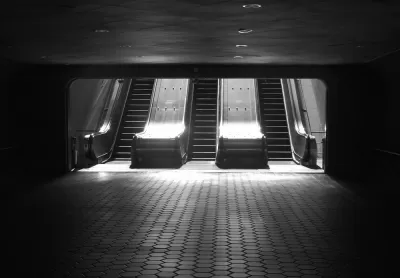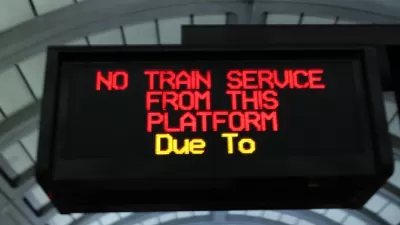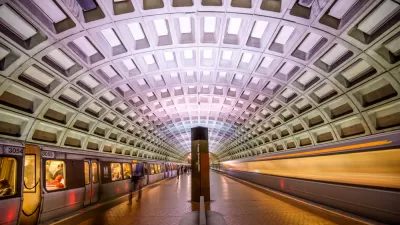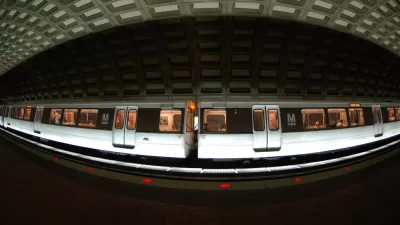With late-night weekend service on hold as the Metrorail service commences its SafeTrack maintenance program, will partiers stay home or simply find new ways to get around?

A post by Martin Austermuhle considers the possibility that the party might be over on weekends in the nation's capital, "as Metro does away with late-night service that for over a decade has kept trains running until 3 a.m. on Fridays and Saturdays." The shut down of service is part of the SafeTrack maintenance program, finalized in May and set to launch on June 18.
Austermuhle cites the example of the Big Hunt, located less than a block from the Dupont Circle station, and where "Metro's ups and downs can translate directly to how well the bar does." An employee of that bar claims that out-of-service escalators have impacted business in the past. It's a concern shared by many restaurant and entertainment businesses along Metrorail routes, writes Austermuhle.
Restaurants, clubs and late-night businesses across the region are now facing a new reality: Without an easy way to get around after midnight on weekends, bar-hoppers and night owls might spend less time out. And less time means less spending by consumers.
Austermuhle also considers the other side of the story: that in 2016, transportation network companies make have equipped people (who can afford it) with new mobility options (beyond driving drunk) that they wouldn't have had in the past. The new options raise the question of whether late-night transit users will even come back to the system once the SafeTrack maintenance work is complete.
FULL STORY: With Late-Night Metro Service Gone, Many Wonder: Is The Party In Washington Over?

Alabama: Trump Terminates Settlements for Black Communities Harmed By Raw Sewage
Trump deemed the landmark civil rights agreement “illegal DEI and environmental justice policy.”

Planetizen Federal Action Tracker
A weekly monitor of how Trump’s orders and actions are impacting planners and planning in America.

The 120 Year Old Tiny Home Villages That Sheltered San Francisco’s Earthquake Refugees
More than a century ago, San Francisco mobilized to house thousands of residents displaced by the 1906 earthquake. Could their strategy offer a model for the present?

In Both Crashes and Crime, Public Transportation is Far Safer than Driving
Contrary to popular assumptions, public transportation has far lower crash and crime rates than automobile travel. For safer communities, improve and encourage transit travel.

Report: Zoning Reforms Should Complement Nashville’s Ambitious Transit Plan
Without reform, restrictive zoning codes will limit the impact of the city’s planned transit expansion and could exclude some of the residents who depend on transit the most.

Judge Orders Release of Frozen IRA, IIJA Funding
The decision is a victory for environmental groups who charged that freezing funds for critical infrastructure and disaster response programs caused “real and irreparable harm” to communities.
Urban Design for Planners 1: Software Tools
This six-course series explores essential urban design concepts using open source software and equips planners with the tools they need to participate fully in the urban design process.
Planning for Universal Design
Learn the tools for implementing Universal Design in planning regulations.
Clanton & Associates, Inc.
Jessamine County Fiscal Court
Institute for Housing and Urban Development Studies (IHS)
City of Grandview
Harvard GSD Executive Education
Toledo-Lucas County Plan Commissions
Salt Lake City
NYU Wagner Graduate School of Public Service





























